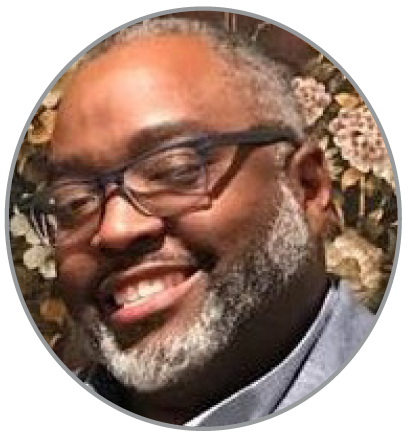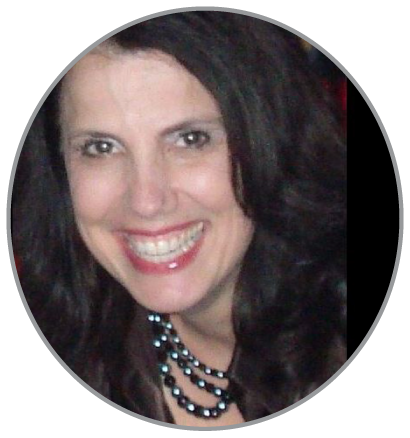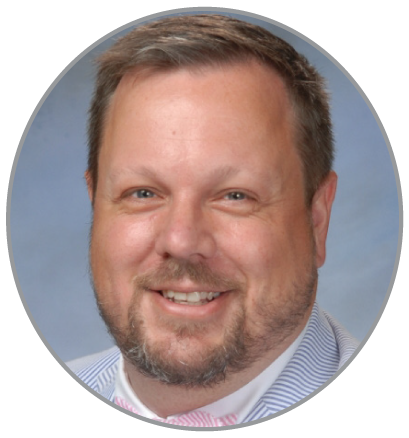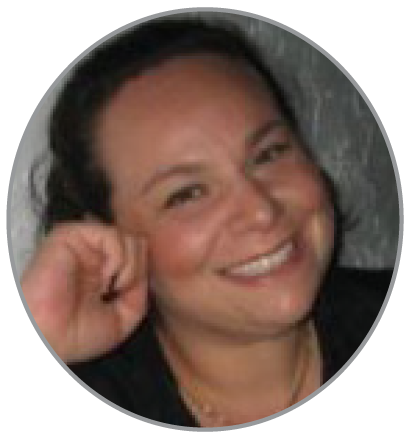As we embark on the 2021-2022 school year, the Journal of Social and Emotional Learning will follow five school leaders as they lead their school communities through a year of rebuilding after the disruption of the past year and a half. Each month, we will learn more about their school communities and their approach to leadership as they share their journeys with us. While their schools, locations, and experiences are very different from each other, they share a strong, schoolwide commitment to social and emotional learning and supporting student and teacher success. This first installment of our Leading the Way series offers an introduction to each leader and their school.
Robert Milner
Principal and Executive Director of Hope Leadership Academy, Kansas City, MO
Wichita State University (BA), University of Missouri–Kansas City (MUEd)

After receiving my teaching certification, I taught high school science. After I earned my master’s, I was an assistant principal at Lee A. Tolbert Community Academy for three years, and I’m currently entering my third year as principal and executive director of Hope Leadership Academy. I’m completing my doctoral degree and recently became an alderman in Riverside, where I live with my wife of 24 years and my daughter and son. I see myself living here for a very long time, building and contributing to the community.
I was drawn to Hope Leadership by the opportunity to learn and grow with a smaller school. It is located in the urban core of Kansas City, with 125 students, grades TK–4, and a staff of 15. We pride ourselves in being a very caring and relational school. We put the needs of the students and families first, and we address all situations with love and high expectations. Our goal is to show our students what it means to be held accountable to success through love and relationship.
Over the course of the pandemic, our biggest successes included no decrease in enrollment, maintaining strong connections between staff and students’ families, and an increase in student resources. Families have seen the care that we have provided through these challenging times, and many have said that they wouldn’t want to be anywhere else.
In preparing for the 2021–2022 school year, we are working to become a trauma-informed school that meets all of our students’ needs. We are providing training for our staff to ensure that we are implementing individualized care and concern for each student in every realm of what we do.
Leslie Paynter
Managing Director/Principal of Alamance Community School (ACS),
Haw River, NC
University of North Carolina–Charlotte (BA & MEd)

Before becoming ACS’s founding managing director and principal in July 2019, I had been a founding board member and principal of Voyager Academy in Durham, North Carolina, for eight years. Before becoming an administrator, I was an elementary school teacher, worked as a special education teacher, a reading specialist, and an EC facilitator.
Fifteen years ago, I was introduced to Responsive Classroom and read Teaching Children to Care: Classroom Management for Ethical and Academic Growth, K–8 by Ruth Sidney Charney. As a special educator and a behaviorist, this was life-changing for me, not only as an educator but also as a parent. My philosophy of behavior management and education significantly shifted after that to a more constructivist approach, focusing on student questions and interests, and teaching them to care for themselves, each other, and their environment, as well as building on their prior knowledge and having them work collaboratively—all of which I wanted to carry over to ACS.
ACS is a public charter school. We opened in September 2020 (yes, during the pandemic!) with 360 K–3 students and 28 teachers. For 2021–2022,
we have 500 students enrolled in K–4 with 55 staff. Our goal is to add a grade level each year until we reach grade 8 in 2025 and an enrollment of 900 students.
Project-based learning and Responsive Classroom practices and strategies are integral parts of our philosophy and mission at ACS. Our students are presented with interesting, relevant, and meaningful problems to solve in an environment that promotes optimal student learning and a caring community of students and staff.
I chose ACS because it presented an opportunity to create a culture where all felt safe and valued, to choose curriculum and implement best practices I believed in, and to hire staff with the same vision and values as the school’s. Once on board, I began preparing for the opening of our new school with our goal of starting by fall 2020 in sight. Then COVID-19 struck, derailing every in person event and activity and wreaking havoc with our carefully prepared plans. By November 2020, we were all-remote. We moved forward with differentiated small-group instruction in reading and math, and continued to build and foster our kind classroom communities with virtual daily Morning Meetings that included staff, teachers, students, and caregivers, and hosted virtual open houses and curriculum nights. Being remote also gave us the ability to have flexible groups across a grade level and even across two grade levels for students to receive additional time in their small groups. We also implemented regular SEL checkins.
The pandemic restrictions resulted in large academic gaps and losses as well as behavioral and social-emotional ones for students. Nearly half of our students are economically disadvantaged and qualify for free and reduced lunches, and over 25 percent have Success Plans, a number expected to increase to 40 percent for 2021–2022. We are excited about the new Fly Five curriculum and plan to implement it with fidelity, K–4, this year.
Once vaccinations increased in our school community, we implemented a VIP Volunteer program with our parents to improve school home
connections, provide additional support to staff and students, and build trust with our families. This program proved very successful for our stakeholders and we plan to continue to grow our program, not only with our families but also with community members.
Trey Veazey
Assistant Head of Lower School, The Walker School, Marietta, GA
University of Southern Mississippi (BS), University of Mississippi (MEd), Louisiana State University (EdS)

I’m entering my second decade in education. I taught grades 1, 3, 5, and Pre-K before landing my dream role—school librarian. Somewhere along the way, though, I was inspired by leadership opportunities. Feeling the pull to support students by supporting teachers, I took my current position of assistant head of lower school. I’ve found school leadership encompasses much more than that original notion, and I enjoy every moment. Outside of education, I find joy in reading, movies, figuring out adulthood with my friends, and exploring life with my wife, daughter, and son.
Each year, The Walker School has afforded me opportunities to grow as a school leader. I’ve never felt so at home. Our community traffics in joy and curiosity, and everyone is committed to leaning into the cactus and getting the hard work done.
We have close to 900 students, PreK–12, with 180 faculty and staff. Our mission is rooted in transformative learning by way of meaningful relationships. Our first core value speaks to the infinite dignity and worth of the individual, and this reverberates throughout the Walker experience.
The pandemic made all of us realize just how resilient we all are. I am proud of the way our staff focused on the central mission of what we do every day as a source of strength. We found better ways of communicating, unearthed unforeseen methods of efficiency, and renewed our passion for small-group instruction.
I am emboldened by the sense of hope that everyone is feeling regarding the upcoming year. I have not felt such a palpable sense of optimism in my entire career. It’s such a good feeling. Keeping our mission of transformative learning through meaningful relationships at the forefront, I am looking to help our faculty expand in five ways: joyful community, individualized instruction, enhanced experiences, strengths-based growth, and belonging.
Aliza Kadish
Principal, Beacon Hill Preparatory School, Miami Gardens, FL
Yeshiva University Stern College for Women (BA),
New York University (MA)

I began teaching in 1999 in White Plains, New York, where I taught grades 1, 3, and 5. I moved to south Florida in 2007 and taught grade 4 for several years. As I grew as an educator, I had opportunities to grow as a leader, and became the special projects coordinator and the after-school activities coordinator. In 2009, I received my coach certification from the Instructional Coaches Academy, and I was accepted to and completed DSLTI through Columbia University, where I gained educational leadership training geared towards independent schools. I became a middle school director in 2013 and then an assistant principal K–8 in 2015. In 2019, I became principal of Beacon Hill Preparatory School. I am deeply invested in independent education and feel that rigorous academics taught alongside values strengthen the individual, the community, and the world. Outside of school, I enjoy knitting, seeing movies and theater, listening to live music, reading, spending time with my family, and traveling, as well as studying educational methodologies, techniques, and ideas.
Established in 1959, Beacon Hill has 35 staff and serves 250 students, preschool to grade 8. Our mission statement is “The Future Belongs to Those Who Prepare.” We focus on values, and view them as just as important as reading and math. While many schools are cutting academic enrichment, including the visual and performing arts, physical education, and second language study, we see these as part of learning each and every day and not “extras.” Our faculty and staff are passionate, creative, and dedicated to the students, the school, and the community. Using multi-modalities, technology, and various instructional techniques, we create an environment where every child can achieve, feel successful, and enrich their learning. Our academic and enrichment curricula are designed to support the whole child. We have a strong SEL program to help students. The introduction and implementation of Fly Five curriculum is going to help students, their learning, and their futures. At Beacon Hill, I have the opportunity to impact children’s futures for the better. Even on a bad day, I feel I have made a difference.
We believe relationships are key to successful learning environments. During the pandemic, creating those bonds in a virtual setting was a challenge. We had to be creative to continue to build relationships with students and their families. Our continued dedication to build relationships and to support one another as a community enabled us to maintain high standards of a rigorous academic curriculum while also focusing on children individually.
I firmly believe that we can’t expect anything from a child that hasn’t been explicitly taught. We don’t expect students to know how to multiply at age 3, write a five-paragraph essay in second grade, or drive a car while in middle school. Skills are taught to children when they are developmentally ready to learn them. We tell students “show respect” or “think about how someone else feels when you say that,” yet we rarely teach them what respect looks and sounds like or how to put themselves in someone else’s shoes. Our goals with Fly Five are to explicitly teach what behaviors we expect at developmentally appropriate ages, begin to lay a foundation of common language around social and emotional competencies for children and adults, and gain support from parents.
Debra Berndt
Principal, Birchwood Elementary
School, Niskayuna, NY
Russell Sage College (MS, Reading Instruction), State
University of New York at Albany (MS, School Administration
and Policy)

I taught grades 1, 3, and 4 over a nine-year period before becoming a principal in a rural K–12 building. Two years later, I became the principal of Birchwood Elementary School and I have been here now for nineteen years. I was named Principal of the Year by the Greater Capital Region Principals’ Center in 2015 and I have coauthored two articles with a fellow principal. Outside of school, I enjoy boating, camping, and spending time outdoors with my family and friends. I like to stay active and run 5K races when my schedule allows.
I learned about Birchwood from colleague of mine, a mentor, and she encouraged me to apply. I stay here because the belief system in this district aligns with my own. As a school leader, I have always believed it is important to teach the whole child. At Birchwood, we put children first at all times. We also believe in our staff and encourage a growth mindset. And when we learned about Responsive Classroom, I knew immediately that it was something we had to implement and share schoolwide.
Birchwood Elementary School is one of five elementary schools in Niskayuna Central School District, a suburb near the Albany and Schenectady area of New York State. We are a K–5 building with 380 students and 27 staff. We also have a number of support staff dedicated to helping children use Responsive Classroom strategies as well. There are 19 classroom sections, including two Intensive Management Needs self-contained classes.
This building is special to me. It has always had a warm and welcoming feel to it. I lead by example and expect everyone—including visitors—to be friendly, honest, and helpful so both children and adults feel welcomed and part of the community. We want each other to succeed and we contribute to that success in our own way. We recognize the importance of our own SEL needs so that we can be our best for our students. We find time in meetings to celebrate each other and to learn about each other’s life outside of school, modeling what is expected from students.
We feel our success during the pandemic was due in part to previous familiarity with Responsive Classroom strategies and Morning Meeting. We were already holding daily Morning Meetings in each classroom, so when we had to go fully remote, we didn’t miss a beat and continued to grow our community of learners via virtual Morning Meetings. This kept staff and students connected. [See the May 2021 issue for more on how Birchwood navigated the pandemic.]
We plan to continue to use Morning Meeting to stay connected with each other and with students. We did not hold schoolwide Morning Meetings while we were teaching remotely but we will be reinstating them this fall with a different grade level running the meeting each month. We are also looking for a way to include parents via an online link or livestreaming. We have implemented a SEL team that meets each month to look at the students and families that may present with high needs so a case manager can be assigned to them. This team includes a psychologist, principal, technology specialist, and social workers. In addition, we are starting to build a shared understanding of logical consequences to be used in our work with students who need support behaviorally.
